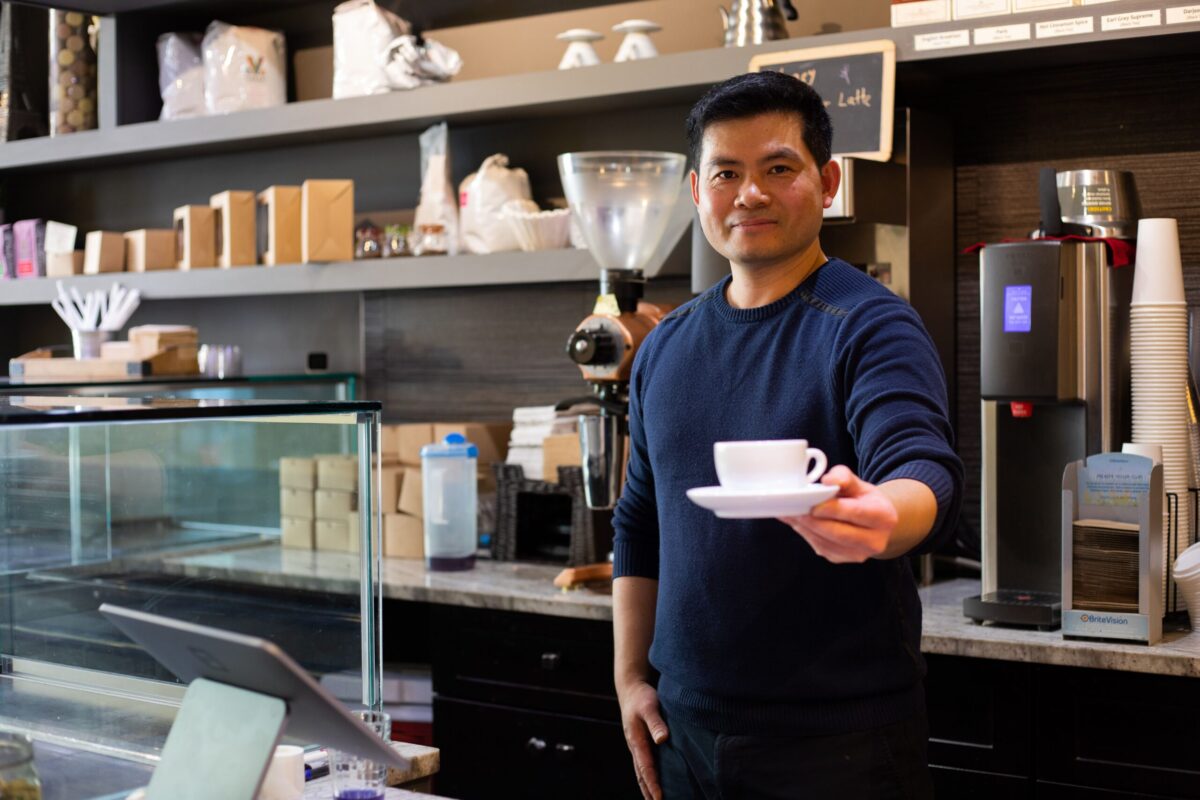ICI, which specializes in macarons and croissant pastries, is currently located at Second and Arch streets. Tan bought a storefront closer to Market Street so he could be closer to some of Philadelphia’s popular tourist attractions.
“The idea is that we will still keep all the old customers around the neighborhood, and they still know that we are here. That way we also get more people visiting Philadelphia that walk by and they’ll come to our shop,” he said. “Tourism for our business is important.”
But then the coronavirus pandemic started. Tan had to close his shop and let go of his employees. And he couldn’t afford to fix up his new storefront.
Tan, who is in his 40s, came to the US from China in 1986. He is one of about 600,000 immigrants living in Philadelphia. Of those, 10% are older than 55.
Older immigrants play an outsized role in the city’s economy; they are more likely to own their own businesses than native-born Philadelphians, according to a Technical.ly analysis. That also means that older immigrants have faced outsized challenges throughout the coronavirus pandemic.
“Just having it empty, it cost more than having it occupied.”
When Tan was able to reopen ICI, he couldn’t afford to bring back his employees. He said he and his wife worked 18-hour days for about a year and half to keep the shop open.
“Everything’s coming from the shop. That’s our sole income. So, we had to make it work, and we got to see how many hours we had to work,” he said.
Last year, Tan was able to hire four employees. He said he now works 15-hour days.
But the new storefront near Market Street remains empty.
“We have to renovate the entire building,” he said. “We have to gut the entire building, take out the floorboards, relocate our bathrooms and tiles — everything.”
Tan wants to open his new location this summer.
“Hopefully, we have something to show,” he said. “Otherwise, I don’t want to wait for another year just by sitting here and paying insurance, paying property tax and everything. Having a construction insurance is not cheap. It’s a lot more expensive than the regular insurance. So just having it empty, it cost more than having it occupied.”
These Thriving audio stories feature reporting by Nichole Currie and audio production by Rowhome Productions.

